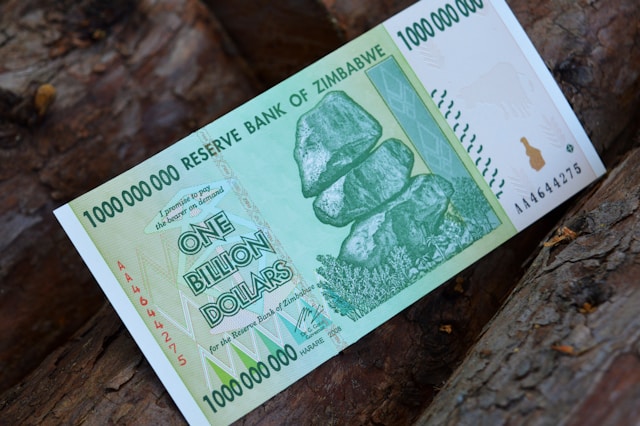In a significant move aimed at bolstering economic stability and confidence, Zimbabwe recently announced the launch of a gold-backed currency. This decision marks a pivotal moment in the country’s financial landscape, signaling a departure from years of hyperinflation and economic challenges.
Background
Zimbabwe has grappled with economic turmoil for decades, characterized by hyperinflation, currency devaluation, and a lack of confidence in the financial system. These challenges have been exacerbated by political instability, mismanagement of resources, and external pressures.
The country’s previous currency, the Zimbabwean dollar, became virtually worthless due to hyperinflation in the late 2000s, leading to its abandonment in favor of a multi-currency system where foreign currencies like the US dollar, South African rand, and others were used in daily transactions. While this stabilized the economy to some extent, it also created dependency on external currencies, limiting the government’s control over monetary policies.
The Move Towards a Gold-Backed Currency
The decision to introduce a gold-backed currency reflects Zimbabwe’s desire to regain control over its monetary policies while restoring trust in the domestic currency. Gold has long been viewed as a symbol of stability and value, making it a logical choice to back a new currency.
By linking the currency to gold, Zimbabwe aims to achieve several objectives:
- Stability: Gold has historically been less prone to volatile price fluctuations compared to fiat currencies, providing a stable anchor for the new currency.
- Confidence: A gold-backed currency can instill confidence among businesses, investors, and the general public, reducing concerns about inflation and currency devaluation.
- Control: With its own currency backed by gold, Zimbabwe can implement tailored monetary policies to address economic challenges and promote growth.
Implementation Challenges
While the move to a gold-backed currency holds promise, it is not without challenges:
- Gold Reserves: Zimbabwe needs substantial gold reserves to back its currency effectively. Acquiring and managing these reserves efficiently will be crucial.
- Market Perception: Convincing the market of the new currency’s stability and value will require transparent communication, effective policies, and sustained economic reforms.
- International Relations: Zimbabwe’s decision may impact its relations with international financial institutions and trading partners, necessitating diplomatic efforts to ensure smooth interactions.
Potential Benefits
Despite the challenges, a gold-backed currency could bring several benefits to Zimbabwe:
- Currency Stability: The new currency could stabilize exchange rates, reduce inflationary pressures, and promote economic predictability.
- Investment Magnet: A credible currency backed by gold may attract foreign investment, spurring economic growth and job creation.
- Monetary Autonomy: By having its own currency, Zimbabwe can tailor monetary policies to suit domestic needs, fostering long-term economic resilience.
Conclusion
Zimbabwe’s launch of a gold-backed currency represents a bold step towards economic rejuvenation and financial autonomy. While challenges lie ahead, the move signals a commitment to address longstanding issues and create a more stable, prosperous future for the country and its citizens. The success of this endeavor will depend on effective implementation, transparent governance, and continued engagement with the international community.



